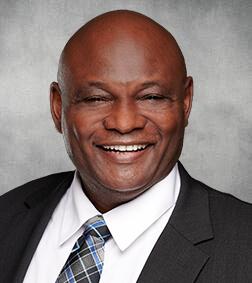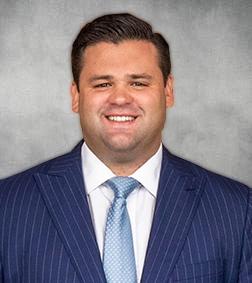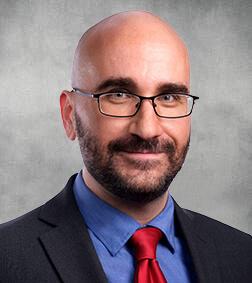FLORIDA VIOLENT CRIME ATTORNEYS
Get Legal Defense from Top 100 Trial Lawyers
A violent crime is defined as an intentional, aggressive act against a person or property that threatens, inflicts, or attempts to inflict physical harm. According to Florida criminal law, a violent crime can be ruled as a felony and if convicted, the offending party could face years in state prison. In addition to imprisonment, the defendant is faced with lost rights and a permanent criminal record. These types of crimes are typically prosecuted to the full extent of the law because of their serious nature.
Given the severe nature of violent crimes, Florida judges tend to err on the side of the plaintiff. At Musca Law, our Florida criminal defense attorneys have years of experience protecting defendants’ rights. We understand how the law works and how the opposition tends to structure their argument. We’re ready to combat anything the prosecution might throw your way.
Types of Violent Crimes
Because the definition of a violent crime is so broad, there are several criminal activities that are commonly categorized as such, including:
- Homicide – The unlawful killing of a human being, which includes first degree murder, second-degree murder, and the three forms of manslaughter – by act, by procurement, and by culpable negligence.
- Robbery – The use of force, violence, assault, or evoking fear while taking money or other property with the intent of permanently or temporarily keeping the material from it’s lawful owner.
- Assault – The unlawful and intentional threat of inflicting violence on another person with the apparent ability to do so. Additionally, aggravated assault includes the use of a deadly weapon or the intent of committing a felony.
- Battery – The intentional and actual touching or striking of another person against their will or the intentional causing of bodily harm.
- Kidnapping – This is defined as forcibly, secretly, or by threat abducting, imprisoning, or confining another against his or her will and without legal authority.
- Child Abuse – Including child neglect, any actions or failure as a guardian that result in the injury or trauma of a child.
- Conspiracy to Commit Violent Crime – The planning of a violent crime is also illegal, whether or not the act ever actually occurs.
Prosecution & Penalties for Violent Crimes
While penalties for violent crimes will vary from crime to crime, first-degree murder is the only conviction eligible for the death penalty. The next most severe sentences are lifetime sentences of prison terms lasting more than 30 years. Both of these penalties are eligible for certain violent crime convictions. In an effort to prove the penalties being pursued are, in fact, appropriate, the prosecution will use expert and witness testimony and any evidence available to prove the guilt of the defendant. In response to such serious penalties, a good Florida violence crime attorney will rebut testimonies and provide evidence to prove the innocence of the defendant or that the penalties being pursued are unusual and excessive.
Committing an Act of Murder (Homicide)
Florida Statute Title XLVI Chapter 782.04 (1-2) defines murder as the premeditated and illegal act of killing another human being. Besides homicide (singularly), culprits may also commit murder while also attempting to commit burglary, kidnapping, sexual assault, aggravated child abuse, carjacking, home-invasion robberies, or any other crimes that involve physical and/or verbal violence.
Any act of murder that is categorized under this code (including acts of terrorism or drugging) will be charged as a federal crime and processed to higher court. People who unlawfully take a life will be charged with a life felony and 2nd-degree murder.
In the event that murder was not the original intent of the crime (as determined by the court), the culprit will be charged with 3rd-degree murder (2nd-degree felony), which is punishable by a 15-year prison sentence and/or a fine that does not exceed $10,000.
Helping Someone Commit Suicide
Under Florida Statute Title XLVI Chapter 782.08, any person who attempts to help someone commit an act of self-murder will be charged with manslaughter (2nd-degree felony), which is punishable by a 15-year prison sentence and/or a fine that does not exceed $10,000.
Committing an Act of Vehicular Homicide
Florida Statute Title XLVI Chapter 782.01 defines vehicular homicide as the act of using a vehicle (e.g. car, truck) to kill another human being and/or an unborn child. Under this code, a culprit may be punished in one of two ways, depending on the circumstances surrounding the crime:
- Chapter 782.01(a): By law, vehicular homicide is charged as a 2nd-degree felony, punishable by a 15-year prison sentence and/or a fine that does not exceed $10,000.
- Chapter 782.01(b): If (during the time of the crash) the culprit was fully aware that the crash had taken place and did not make any attempt to help the victims, he/she will be charged with a 1st-degree felony, punishable by a 30-year prison sentence and/or a fine of $10,000-$15,000.
Committing an Act of Robbery
Florida Statute Title XLVI Chapter 812.13(1) defines robbery as a situation where a culprit steals (or attempts to steal) money or additional varieties of private property from the owner, with the intention to momentarily or permanently preventing this individual from claiming ownership. Depending on the severity of the crime, the culprit can be charged in one of several ways:
- Chapter 812.13(2a): If the culprit was armed with a firearm or other deadly weapon during the time that the robbery took place, he/she will be charged with a 1st-degree felony, punishable by a 30-year prison sentence and/or a fine of $10,000-$15,000.
- Chapter 812.13(2b): If the culprit was armed with a weapon during the time the crime took place, he/she will be charged with a 1st-degree felony, punishable by a 30-year prison sentence and/or a fine of $10,000-$15,000.
- Chapter 812.13(2c): if the culprit did not carry a firearm or other type of weapon during the robbery, he/she will be charged with a 2nd-degree felony, punishable by a 15-year prison sentence and/or a fine that does not exceed $10,000.
Assaulting a Victim
Florida Statute Title XLVI Chapter 784.011 defines assault as the intentional and illegal threat of violence or act of violence on a victim (or victims) and having the physical ability to carry out this threat, stirring a deep-rooted fear in the potential victim that he/she will be violently attacked. Any person who intentionally and maliciously attacks another person in this manner will be charged with a 2nd-degree misdemeanor, punishable by a 60-day prison sentence and/or a fine that does not exceed $500.
In that light, any person who commits an act of aggravated assault (taking place when a person uses a weapon to abuse or injure a victim, with the intention of committing a felony) will be charged with a 3rd-degree felony, punishable by a 5-year prison sentence and/or a fine that does not exceed $5,000.
Committing a Battery Offense
According to Florida Statute Title XLVI Chapter 784.03, battery takes place when a culprit intentionally and maliciously touches or hits another person against his/her will, resulting in bodily injuries. Any person who commits a battery offense will be charged with 1st-degree misdemeanor, punishable by a 1-year prison sentence and a fine that does not exceed $1,000. Anyone who was previously charged for battery and commits a second (or subsequent) act of battery will be charged with a 3rd-degree felony, punishable by a 5-year prison sentence and/or a fine that does not exceed $5,000.
Under Chapter 784.041, a felony battery takes place when a person intentionally and maliciously touches or strikes a victim, resulting in the infliction of permanent bodily damage, disfigurement, or disability. In this case, culprits will be charged with a 3rd-degree felony, punishable by a 5-year prison sentence and/or a fine that does not exceed $5,000.
Under Chapter 784.045, aggravated battery occurs when a culprit (while committing the act of battery) intentionally inflicts physical damage on a person and uses a deadly weapon in the process of doing so. (Aggravated battery can also include a situation when the culprit should have known a female victim was pregnant or was fully aware of this situation.) Aggravated battery offenders will ultimately be charged with a 2nd-degree felony, punishable by a 15-year prison sentence and/or a fine that does not exceed $10,000.
Kidnapping a Victim
Florida Statute Title XLVI Chapter 787.01 defines kidnapping as the act of forcibly and/or threateningly abducting, imprisoning, and/or holding a victim (or victims) against his or her will with the intention to:
- Hold the victim for ransom or use him/her as a hostage for bargaining.
- Committing a felony of any variety.
- Physically harming and/or terrifying victims.
- Disrupting the function of government.
Any person who kidnaps a victim (for the aforementioned purposes) will be charged with a 1st-degree felony, punishable by a 30-year prison sentence and/or a fine that does not exceed $10,000-$15,000.
Kidnapping a Child Victim
Under the same code of Chapter 787.01, any person who kidnaps a victim who is 13 years old or younger without the consent of his/her parent or guardian will be charged in one of several ways (depending on the severity of the crime), which is punishable by a life felony and/or a fine that does not exceed $15,000:
- Aggravated abuse of a child
- Sexual battery of a child
- Lewd and/or lascivious battery, molestation, conduct, and/or exhibition
- Child prostitution
- Exploitation of a child
- Human trafficking
Committing an Act of Child Abuse
Florida Statute Title XLVI Chapter 827.03 defines child abuse as the act of battering, torturing, maliciously punishing, caging, and/or intentionally harming a juvenile (ultimately resulting in a form of physical and/or mental injury). This category also includes the act of urging someone to commit these acts on a child victim.
Anyone who commits this crime may be charged in one of several ways, depending on the severity of the offense:
- Aggravated child abuse: Anyone who commits this crime will be charged with a 1st-degree felony, punishable by a 30-year prison sentence and/or a fine of $10,000-$15,000
- Child neglect: People who willingly and maliciously neglect a child (resulting in bodily and/or mental harm) will be charged with a 2nd-degree felony, punishable by a 15-year prison sentence and/or a fine that does not exceed $10,000.
- Abusing a child: Anyone who willingly abuses a child but does not inflict bodily harm on the victim will be charged with a 3rd-degree felony, punishable by a 5-year prison sentence and/or a fine that does not exceed $5,000.
- Child neglect (no injury): People who intentionally and maliciously neglect a child without inflicting bodily harm on the victim will be charged with a 3rd-degree felony, punishable by a 5-year prison sentence and/or a fine that does not exceed $5,000.
Conspiracy to Commit a Violent Crime in Florida
As dictated by Florida Statute Title XLVI Chapter 777.04(3), any person who agrees to commit a crime or works with another person to do so will be charged with conspiracy to commit this offense. In the effect that the courts deem the crime a low-ranking conspiracy, the culprit will be charged with a 1st-degree misdemeanor, resulting in a 1-year prison sentence and/or a fine that does not exceed $1,000. If the crime constitutes a capital felony, culprits will be charged with a 1st-degree felony, punishable by a 30-year prison sentence and/or a fine that does not exceed $10,000-$15,000.
Determining a Viable Case for Violent Crimes in Florida Court
For a readout of instructions provided to juries for the aforementioned crimes, please review the links to the following cases:
- Chapter 6: Attempted Homicide
- Chapter 7: Homicide
- Chapter 8: Assault and Battery
- Chapter 9: Kidnapping and imprisonment
- Chapter 16: Child abuse
Strong Legal Defense for Your Violent Crime Charge
The repercussions of a violent crime conviction far outlive a prison sentence and will have bearing on a person’s personal and professional life. Don’t be afraid to put the skills of an experienced Florida criminal defense attorney on your side. The legal team at Musca Law has the experience and resources required to help fight your conviction. Schedule a free consultation with our law firm today by calling (888) 484-5057 today.









































